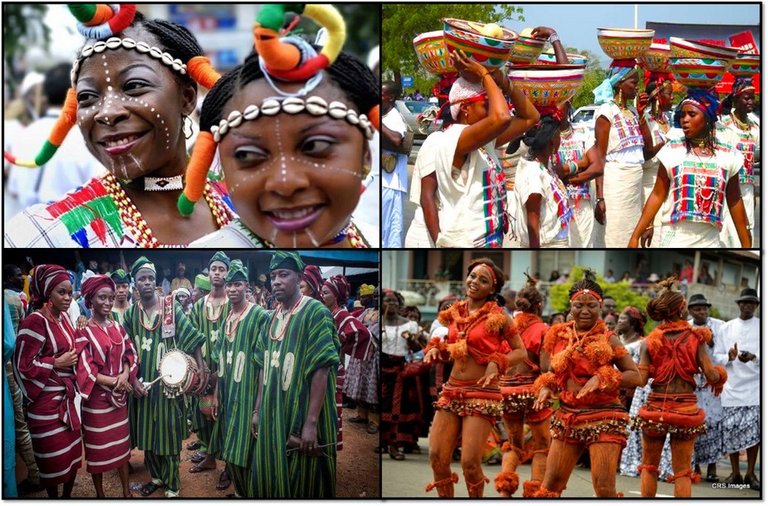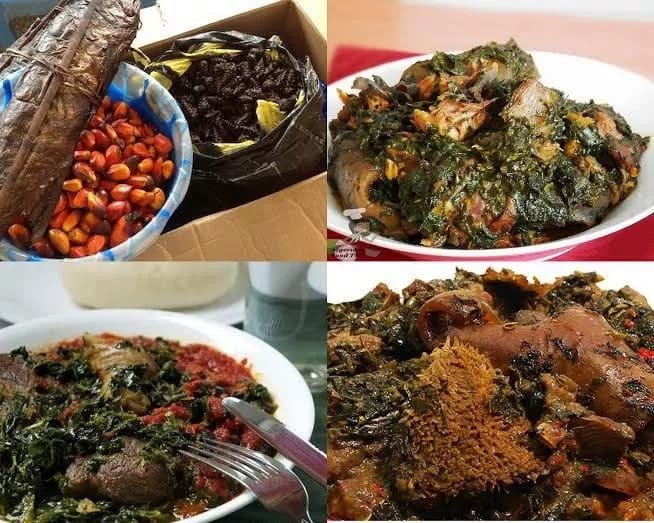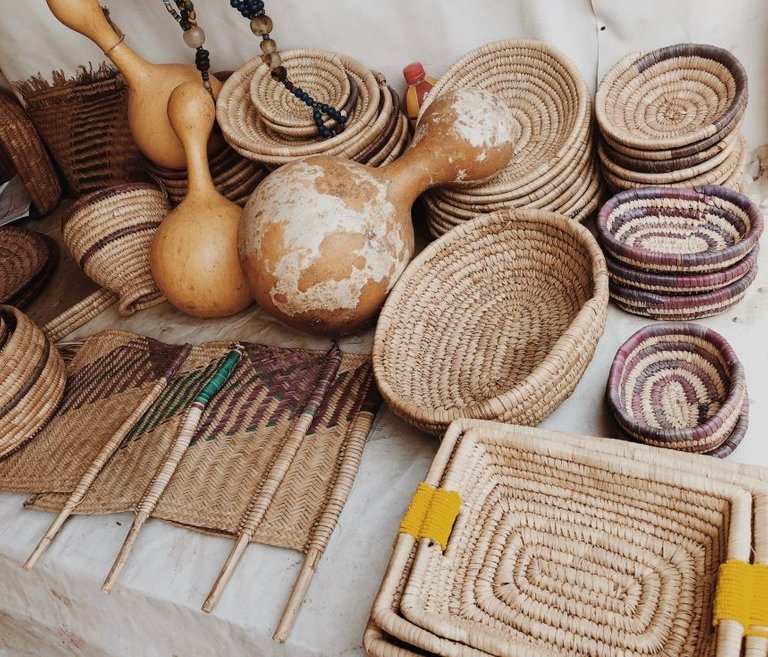Nigeria is regarded as the most populous black country in the world with a population of 200 million people. Nigeria is located at the Western part of Africa. geographically situated between the Sahel to the north, and the Gulf of Guinea to the south in the Atlantic Ocean; covering an area of 923,769 square kilometres (356,669 sq mi), with a population of over 211 million. Nigeria borders Niger in the north, Chad in the northeast, Cameroon in the east, and Benin in the west. Nigeria is a federal republic comprising 36 states and the Federal Capital Territory, where the capital, Abuja, is located. The largest city in Nigeria is Lagos, one of the largest metropolitan city in the world and the second-largest in Africa.
Nigeria has been home to several indigenous pre-colonial states and kingdoms since the second millennium BC. Nigeria is a multinational state with more than 250 ethnic groups speaking 500 distinct languages, all identifying with a wide variety of cultures.

Language: This is of the most remarkable difference which distinguishes one culture from the other in Nigeria. We have over 250 indigenous languages in the country. Hausa, Yoruba, Igboare the major languages in Nigeria ,examples of some oother languages in Nigeria are Boze,Bura, Ebira,Edo,Efik,Esan, Ibibio, Idoma,Igala,Igede,Ijaw,Ikwerre,Isoko,Itsekiri,Jukun,Kanuri,Karai-Karai,Ngas,Nupe,Kupa,Obolo,Ogoni,Oron,Tiv.
Religion; Apart from the two major Religions that is Christianity and Islam, each ethnic group in Nigeria has its own perculiar traditional religion and beliefs.
Food : Each ethnic group in Nigeria has its own particular food, Afang soup for the Ibibio, Ewedu for the Yorubas, Groundnut soup for the Bini people, Owo soup and starch for the Urhobo people. These delicacies are some of the best in World. When visiting Nigeria be sure to have a taste of these delicacies.

Shelter: Climate and natural endowment also reveals differences in culture. A typical Fulani man will live in hut made with grasses. A Yoruba man will live in a brick house. The climate of Northern part of Nigeria is very harsh. Resources of the place are also different from the southern part of Nigeria. This differences dictate the type of culture we found in any part of the country.
Greetings: The various ethnic groups in Nigeria have their various patterns of greeting. The Yoruba man prostrates before the elders while the female ones kneel down. The Hausa male squats while the female kneel down.
Art and Craft

- BRASS AND BRONZE WORKS
The brass and bronze is still practiced in Benin, Bida and in the southwest of Nigeria.
*WOOD ARTS AND CARVING
Although places like Osogbo, Benin, Oyo and Awka are recognized as the center of wood carvings
*IVORY CARVING
Ivory carving in Benin, Owo, Oyo and in the palaces of traditional Nigerian rulers. - GRASS AND CANE WEAVING
Northern Nigeria
*LEATHER AND CALABAS
Excellent workings in leather and pumpkin carvings are produced in Oyo, Kano, Gumi and Sokoto.
Yoruba people
This people prefer very bright and outstanding garments, especially the clothing for special occasions like weddings and funerals. Some consider the national clothing of Yoruba people to be traditional costume for Nigeria in general. Maybe it's because of wide popularity and bright colors. Yoruba people wear the following pieces of clothing:
buba – a loose-fitting blouse with round or V-shaped neckline and long sleeves. Its length is a little bit lower the waistline. Both men and women use it;
iro – a long wrap-around skirt. The rectangular piece of cloth is wrapped around the waist and hips, and tucked in at the end;
agbada – a men's robe that is worn over the other clothes. It is used for formal events;
sokotos – loose-fitting trousers with a drawstring to hold them up;
gele – the traditional Nigerian headdress. It is a piece of cloth that is used by women, they wrap it around their heads. There are many variations of how to wrap it.
Igbo people
The traditional attire for Igbo women are various wraps. There are wraps for everyday life – cheap and easy, made from coarse fabrics; and wraps for formal occasions – made from expansive imported fabric, with patterns on cloth and different decorations.
HausaFulani people
Men's traditional outfit consists of a wide-sleeved robe called "babban riga". It is floor-long, with long wide sleeves. This garment is an equivalent to Yoruba's agbada. This dress is very popular among Nigerian men as clothes for formal occasions. Hausa-Fulani men also wear a headdress called "fula", it is a round cap.
Nigeria is a multi-ethno country, it is this diversity that makes Nigeria stand-out among others. This diversity has made Nigeria a strong and prosperous, in that each region is blessed with it's own natural and human resources, when these resources are probably utilitatized the results are always phenomenal.
Hi, I
m from nigeria too, Its filled with content for people to know,thanks for sharing.You're welcome dear, thanks for your comment. So glad to meet you